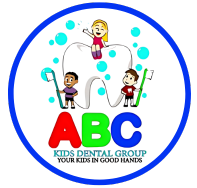How to Handle Your Child's First Toothache
Learn why baby teeth are crucial for your child\u2019s development, from nutrition and speech to guiding permanent teeth, and how to care for them effectively.

Why Baby Teeth Matter: The Foundation for a Healthy Smile
Baby teeth, also known as primary teeth, are a significant milestone in a child’s development. While they may seem temporary, their role in shaping a child’s oral health is far from fleeting. Understanding why baby teeth matter can help parents prioritize their care and set the foundation for a lifetime of healthy smiles.
1. Essential for Proper Chewing and Nutrition
Baby teeth play a critical role in helping children chew and digest their food properly. Strong primary teeth allow children to consume a variety of foods, ensuring they get the necessary nutrients for growth and development. Without healthy baby teeth, eating can become uncomfortable, leading to limited food choices and potential nutritional deficiencies.
2. Speech Development
The positioning of baby teeth aids in the development of clear speech. These teeth help children form sounds and pronounce words correctly. Missing or decayed baby teeth can hinder this process, potentially causing speech delays or difficulties that may require intervention later.
3. Guiding Permanent Teeth
Primary teeth serve as placeholders for permanent teeth. They guide the permanent teeth into their correct positions by maintaining the space needed for them to erupt properly. If a baby tooth is lost too early due to decay or injury, neighboring teeth may shift into the empty space, leading to crowding or misalignment of the adult teeth.
4. Promoting Healthy Jaw Development
The presence of baby teeth supports the growth and development of the jawbones and facial muscles. They stimulate the jawbone through chewing and biting, helping to create a strong foundation for permanent teeth.
5. Building Good Oral Hygiene Habits
Caring for baby teeth instills lifelong habits of good oral hygiene. Teaching children to brush and floss early not only protects their primary teeth but also establishes routines that carry into adulthood. These habits help prevent cavities, gum disease, and other oral health issues down the line.
6. Preventing Pain and Infection
Neglecting baby teeth can lead to cavities and infections, which can cause significant pain and discomfort for children. Untreated dental issues can also affect overall health, potentially leading to systemic infections or other complications.
How to Care for Baby Teeth
-
Start Early: Begin cleaning your child’s gums with a soft, damp cloth even before the first tooth erupts.
-
Brush and Floss: Once teeth appear, brush them twice daily with a small, soft-bristled toothbrush and a pea-sized amount of fluoride toothpaste. Introduce flossing as soon as two teeth touch.
-
Regular Dental Visits: Schedule your child’s first dental visit by their first birthday or within six months of their first tooth erupting.
-
Healthy Diet: Limit sugary snacks and drinks, and encourage a diet rich in fruits, vegetables, and dairy to strengthen teeth.
Conclusion
Baby teeth are more than just temporary placeholders; they play a vital role in a child’s overall health and development. By taking good care of your child’s primary teeth, you’re laying the groundwork for a lifetime of healthy smiles. Remember, the habits and practices you establish today will benefit your child well into the future.
visit now
phone no. - (833)-i-ABC-Kid
website - www.abckidsdentalla.com
What's Your Reaction?























